What Does the Pain of Pancreatitis Feel Like : [ Full Guide ]
Many people are not aware of the pain associated with pancreatitis. For some, it may be mild and only cause occasional discomfort in the upper abdomen.
Others experience constant severe pain that can range from a dull ache to an intense burning sensation in the stomach area. Physicians might not diagnose these symptoms for days or weeks.
The severity of pancreatitis is determined by how inflamed your pancreas becomes when you have this condition. During the course of treatment, mild cases of pancreatitis can be managed, but severe pancreatitis cases can result in life-threatening complications.
What Does the Pain of Pancreatitis Feel like - An Explanation
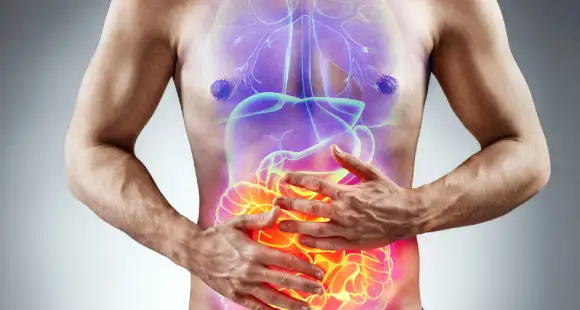
We need to know a few things about pancreatitis before we proceed.
Causes of Pancreatitis
The cause of pancreatitis is premature activation of digestive enzymes, and may include:
- Alcohol abuse or heavy binge drinking: It is estimated that about 10% of cases of pancreatitis are triggered by alcohol consumption.
- Gallstone: Some patients with gallstone will develop pancreatitis.
- A viral infection such as mumps, coxsackievirus, Epstein-Barr virus, cytomegalovirus, or any other virus can cause pancreatitis. Genetic defects a rare form of pancreatitis is called hereditary pancreatitis, which is usually diagnosed in young men.
- It is an inherited disorder caused by a defective gene that makes a protein thought to be involved in the regulation of the digestive enzymes produced by the pancreas.
What Are the Symptoms of Pancreatitis?
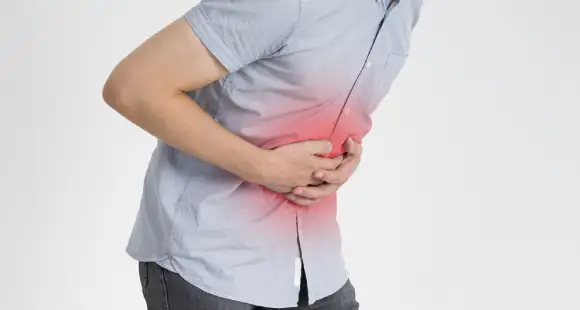
Common symptoms of Pancreatitis include:
- Fever and chills: This is because the immune system is involved in the inflammatory process of pancreatitis.
- Sharp upper abdominal pain: This typically happens one to five hours after eating, and can last for several minutes or up to a few hours at a time. The severe pain may radiate to the back, shoulder blade area, or between shoulder blades.
- Nausea and vomiting: This is a common symptom that can result from a number of reasons, but it is a common one in cases of pancreatitis because the digestive enzymes from the pancreas enter the bloodstream.
- Abdominal pain: This severe abdominal pain can be severe pancreatitis and is often described as sharp, constant, and intense. Other symptoms may include constipation or diarrhea.
- Painful joints: This may happen because pain impulses from the abdomen can migrate to other parts of the body.
- Jaundice: Yellowing of skin and eyes caused by high levels of bilirubin in the blood. The patient's urine might also become dark or murky looking due to liver problems.
In some cases, the patient may also feel very tired and have a high temperature or chills from a drop in their white blood cells.
Pancreatitis can be life-threatening if it is not treated quickly by a doctor. In fact, one out of every 10 people who have pancreatitis will eventually die from it.
What does it feel like when Pancreatitis occurs?
The pain is usually felt in the upper abdomen area, and it may feel like a dull ache or a burning sensation.
The pain can also be described as cramping, squeezing, fullness, aching, sharp, stabbing, or severe cases during chronic pancreatitis.
The pain may be worse after a meal, lying flat on your back, or when you move from a sitting to a standing position. Sometimes the pain can radiate to the back near the left shoulder blade, and it also may radiate between the shoulder blades.
In some cases of chronic pancreatitis, there may be weight loss and malnutrition because of the associated vomiting and diarrhea. Necrotizing pancreatitis (NP) of your pancreas can cause your part of your organ to die.
Is Pancreatitis Common?
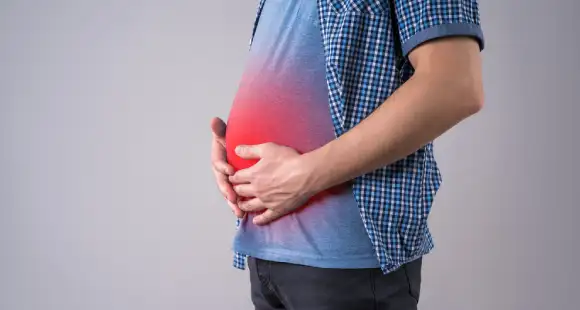
Pancreatitis is a condition in which the pancreas becomes inflamed, leading to sharp and constant severe pain in the abdomen. The exact cause of pancreatitis is not fully understood but it often occurs with heavy alcohol consumption or gallstone.
Patients are often admitted to the hospital for treatment with analgesics, intravenous fluids, and sometimes surgery if complications are present. Pancreatic cancer is not typically detected early enough to cure it.
According to a study conducted by Wiley-Blackwell, there has been a rise in cases of pancreatitis over the last 50 years. In 1961, it was estimated that about 7 out of every 100,000 Americans will have pancreatitis each year. This figure has risen to 15 out of every 100,000 Americans who experience pancreatitis each year.
How many types of Pancreatitis are there?
The types of pancreatitis are chronic pancreatitis and acute pancreatitis. Those who suffer from acute or chronic pancreatitis may feel the pain differently.
Symptoms of acute pancreatitis:
- A. Sudden onset of crushing lower abdominal pain that lasts for several minutes.
- B. Pain radiating to the back near the left shoulder blade, pain may also radiate between the shoulder blades.
- C. Fever and restlessness to go to the toilet, nausea, vomiting, constipation, or diarrhea.
- D. Sometimes there is jaundice (yellowing skin).
The person may become very tired because their white blood cells are low. The person may feel feverish because their immune system is involved in the inflammatory process of acute pancreatitis.
Insulin and digestive fluids are produced by the pancreas, which is in the upper abdomen. Acute pancreatitis usually doesn't affect the pancreas that makes hormones, especially insulin.
Symptoms of Chronic Pancreatitis:
- A lifelong history of severe abdominal pain, sometimes with occasional periods of milder pain.
- Rarely, a patient may have this disorder with no symptoms at all if they have a genetic disorder that causes them to produce an enzyme that is defective and unable to regulate the enzymes from the pancreas.
- Loose, pale, and fatty stools that don't flush away easily.
- Tiredness and excessive thirst.
- The most common symptom in most cases of chronic pancreatitis is recurrent abdominal pain.
What you should do During Pancreatitis?
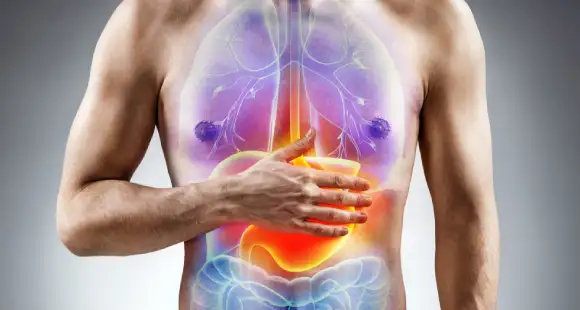
If you're experiencing the pain of pancreatitis, then it's best that you keep low activity levels. You should avoid anything that requires heavy lifting or that puts pressure on the abdominal area. Walking and stretching may help in relieving some of the pain medication.
You should also limit your intake of fatty foods, dairy products, and greasy or fried foods. You should avoid alcohol and cigarettes as well. Fats, proteins, and carbohydrates are broken down by pancreatic enzymes.
The doctor will prescribe you painkillers to help ease the pain and this is usually in tablet form so it's best to take them after a meal.
In some cases, your doctor may also prescribe anti-inflammatory or antibiotics if there is an infection present that might have triggered your pancreatitis episode.
If you're suffering from pancreatitis and have been vomiting, then it's best to drink fluids. If you vomit again, then there is a possibility of dehydration so it's important that you listen to your doctor when he or she instructs you on when and what to drink.
What are the Treatment Options for Pancreatitis?
The treatment options for pancreatitis may vary depending on the severity of the symptoms and the presence of complications. Some simplest treatments are:
Treatment for Acute Pancreatitis
Acute pancreatitis is often managed by pain management, intravenous fluids, and stopping alcohol consumption. If the symptoms worsen or do not improve with these treatments, surgery is usually recommended.
Acute Pancreatitis in children is managed with fluid replacement therapy unless severe pancreatitis is when they are admitted to the hospital.
For severe acute pancreatitis, surgery may be necessary to remove the damaged portion of the pancreas or parts of the pancreas that have been infected.
Surgery may also be necessary for patients who have complications that occur during acute pancreatitis. These include heart failure or infection along the line of the common bile duct.
Treatment for Chronic Pancreatitis
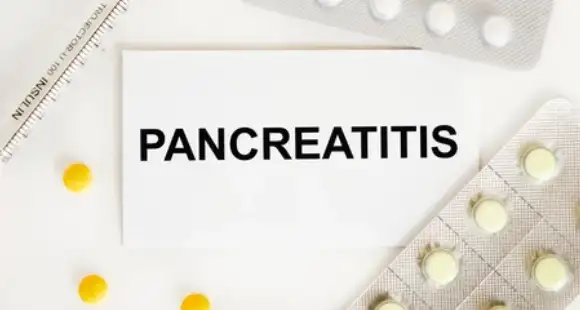
Approximately 50% of chronic pancreatitis patients will undergo surgery to remove the damaged portion of their pancreas.
Additionally, because the damaged pancreas does not produce enough digestive enzymes, these patients may also need to take pancreatic duct enzyme replacements to keep their digestion healthy.
Chronic pancreatitis can also be treated with medications to relieve pain and nausea. Also, by controlling blood sugar levels through diet and medication, more damage can be prevented in diabetics who have chronic pancreatitis cancer.
Complication Associated with Pancreatitis
Pancreatitis can cause potentially fatal complications. Including these:
- Obstructing the pancreatic duct or bile duct,
- Pancreatic duct leakage,
- Infections, hemorrhages, or ruptures of pseudocysts,
- Injuries to the pancreas,
- Pluvial effusion,
- Thrombosis of the splenic vein,
- Pancreatic cancer,
- Endoscopic retrograde cholangiopancreatography, or ERCP.
It is possible to suffer heart, lung, and kidney failure. If the symptoms last more than 48 hours, the organs may fail. If left untreated, these symptoms can lead to death. If someone shows signs of acute pancreatitis, treatment should be sought as soon as possible.
FAQs
Here are some FAQs that you might want to know about what the pain of pancreatitis feels like:
1. What Food should I Consume if I have Pancreatitis?
Answer: Experts recommend that patients with pancreatitis should eat a high-protein diet such as fish, dairy products, and fresh vegetables.
2. What Foods should I Avoid when I have Pancreatitis?
Answer: Foods high in fat are difficult to digest. These should be avoided because the pancreas cannot produce enough enzymes to digest them.
3. For how long does Pancreatitis last?
Answer: Pancreatitis symptoms can last up to 1-2 weeks. However, pancreatitis can be chronic so the symptoms may continue to re-occur over time.
4. What Home Remedies can Treat Pancreatitis?
Answer: Pancreatitis can be treated through natural remedies. Some of these include, eat an alkaline diet, and avoid high-sugar foods and refined carbs.
5. Can I take other Vitamins or Supplements with Pancreatitis?
Answer: Some vitamins and supplements may not be as effective if you have pancreatitis. This is because the pancreas has already been damaged so it can't produce as many enzymes.
6. Does Pancreatitis Occur in Children?
Answer: It is hard to determine the exact cause of pancreatitis. It's more common in adults than children and most likely to be found in those aged between 40-60 years old. However, pancreatitis may be found in children.
Conclusion
Pancreatitis is a painful condition that affects the pancreas, so it's important to know how to recognize and treat this illness.
We hope you find this article very helpful for more information on what other treatments are available for patients who suffer from heart failure or bile duct infections due to pancreatitis.
